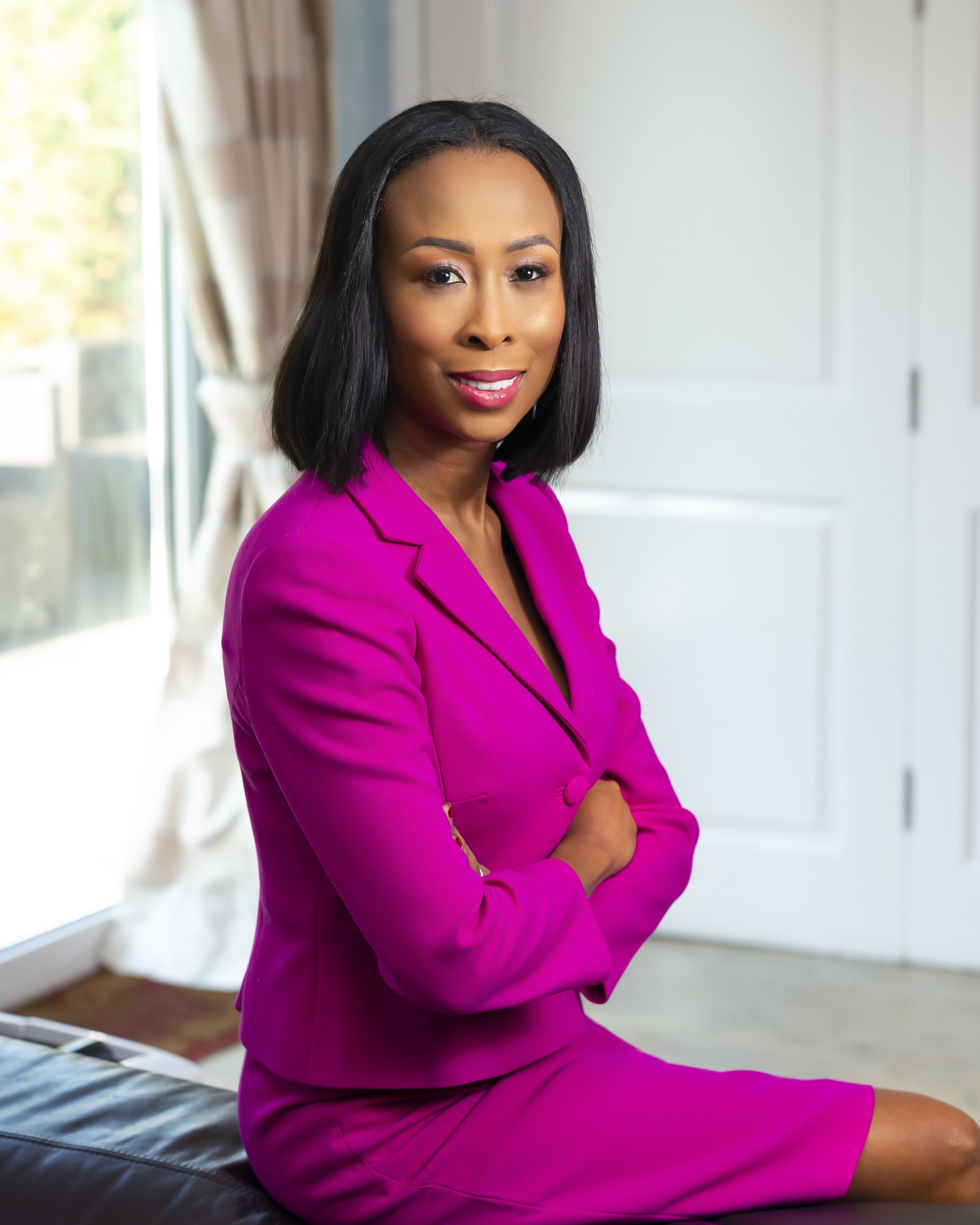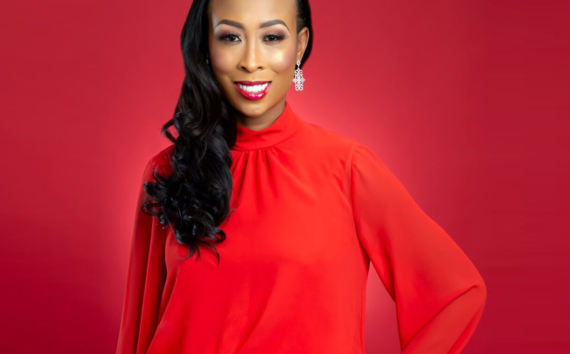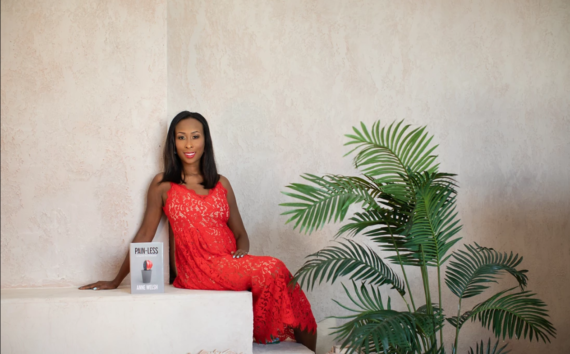This disaster will build your self-confidence. “What doesn’t kill you makes you stronger” as the ageless saying goes. Make sure you treat yourself as a survivor and be very happy if you come through this. As a part of my series about the things we can do to remain hopeful and support each other during anxious […]
By

This disaster will build your self-confidence. “What doesn’t kill you makes you stronger” as the ageless saying goes. Make sure you treat yourself as a survivor and be very happy if you come through this.
As a part of my series about the things we can do to remain hopeful and support each other during anxious times, I had the pleasure of interviewing Anne Welsh.
Anne Welsh is an internationally recognized author, entrepreneur and philanthropist. In 2019 she launched her memoir, Pain-less to inspire people who, like herself, live with sickle cell and work hard to find a pathway to a gratifying life while living with pain. She has appeared on many radio and television spots, such as the BBC, Channel 4 news, London Live and others and in front of decision makers and parliamentary political leaders in the UK and in countries around the world where sickle cell is a serious health issue. Anne has a degree in Accounting and Finance and an MSc in Investment Management and broke barriers as an investment banker with Lehman Brothers, by establishing workplace practises for ethnic minorities and people with disability. She now runs her own consultancy firm based in London England and is an expert in bringing business opportunities to investors around the globe. Her consultancy also extends to advising companies on how to improve their performance by overcoming the physical and mental health challenges of employees.
Category :
InterviewsClient :
Thrive GlobalDate :
23rd Jun, 2020Link :
www.thriveglobal.com
Category :
InterviewsClient :
Authority MediumDate :
23rd Jun, 2020Link :
www.medium.com
Thank you so much for doing this with us! Our readers would love to “get to know you” a bit better. Can you share with us the backstory about what brought you to your specific career path?
Any story has to start with the fact that I am a sickle cell sufferer, because the choices I have taken in life start with this fact which influences so much of what I do in business and philanthropy. From being a young girl, I wanted to follow in my father’s career path of being an accountant. In my final year of University, I did an internship with Lehman Brothers, an Investment Bank in the City and new that I liked the atmosphere of the job and after completing my MSC at Cass Business School, it was a natural progression to join the banking fraternity. I just loved the excitement and rewards of doing a job well. After the Bank went bankrupt in 2008, I took time to have my first child and participated in various charities at Chairperson level. I am an entrepreneur by nature and started my own consultancy business when the time was right, because having control over my time and location of doing work helps maintain my health.
Is there a particular book that made a significant impact on you? Can you share a story or explain why it resonated with you so much?
My book of choice is ‘The Gifts of Imperfection: Let Go of Who You Think You’re Supposed to Be and Embrace Who You Are (Brené Brown)’. I found that this book contains guidance for living ‘holistically’ with chapter titles like “Cultivating Authenticity: Letting Go of What People Think” and “Cultivating Creativity: “Letting Go of Comparison” people will immediately identify with the concept that one should be comfortable with themselves; letting go of concepts such as productivity as a measure of self-worth and to move away from self-doubt and the need to feel constantly in control.
Ok, thank you for all that. Now let’s move to the main focus of our interview. Many people have become anxious from the dramatic jolts of the news cycle. The fears related to the coronavirus pandemic have heightened a sense of uncertainty, fear, and loneliness. From your perspective can you help our readers to see the “Light at the End of the Tunnel”? Can you share your “5 Reasons To Be Hopeful During this Corona Crisis”? If you can, please share a story or example for each.
The pandemic will not last forever. This needs to be understood by every individual. If not, then there will never be the ‘light at the end of the tunnel’ and you will feel depressed for as long as this nightmare continues and not be prepared when it ends.
There can be equally good consequences as well as bad. The deaths and destruction of people and their livelihoods is a reality; but there are many individuals and companies that will emerge stronger and better able to take on the challenges of a new world — there are many changes coming.
Take time to enjoy the closeness of family and be kind to everyone. For many, the time spent with children and spouses or significant others likely will not happen again. Enjoy it and look on the idyllic time you have spent with the most important people in your life. Open yourself up to kindness and selflessness to your neighbors and community.
This disaster will build your self-confidence. “What doesn’t kill you makes you stronger” as the ageless saying goes. Make sure you treat yourself as a survivor and be very happy if you come through this.
Prepare for the ramp up. The new world order will be different. It will be kind for those people who are diligent, able to adapt their way of life and grasp opportunity that was not visible before the pandemic.
From your experience or research what are five steps that each of us can take to effectively offer support to those around us who are feeling anxious? Can you explain?
The fear surrounding the pandemic is very real and the uncertainty and anxiousness caused by this should never be diminished in any way. Personally, I have a very disciplined approach to keeping myself healthy and mentally focused and by following these simple steps you may be able to capture those opportunities for life that you might not have imagined before and should at the very least make one feel less anxious.
The first is to be ruthless and disciplined in avoiding large crowds or close proximity of people. This is very difficult because it goes against the social nature of being a human being; regardless, you must change your lifestyle to accomplish it. Examples are driving versus public transport, no family gatherings and stop going outside your abode unless absolutely necessary.
The second is to maintain an obsessively high level of personal hygiene and this must apply to everyone in the household. Wash your hands thoroughly and with soap, make sure clothes are changed from an outing and then washed and keep going in the shower multiple times a day if you are exposed.
Eat healthy. Avoid the urge to order in take-aways. Plan your eating schedule so you don’t overindulge and binge on unnecessary and often unhealthy snacks. Eat a balanced diet where possible. If you have a routine of taking vitamins, then don’t stop.
Don’t forget to exercise as this will keep your body and your mind more alert. This is a big ask as studies have shown that a person will take twice as long to get back in shape as it did to lose that pre-existing level of fitness. Being fit gives you a much better chance of survival if you have the misfortune of catching the disease. Of course, this assumes that people are able to participate in exercise.
Avoid a big change in temperature as this is often a common trigger that can lead to colds and a degradation in your immune system. As a sickle cell patient, I really want to keep my body warm.
What are the best resources you would suggest to a person who is feeling anxious?
First, I would turn to family or friends. You can’t be shy about talking to your closest and dearest. For me personally faith plays an important part in my life and my Minister would be someone I would turn to and have him or her listen to my deepest problems. There are also helplines and charities that offer counselling, guidance or just a listening ear; they are all good options. I would also suggest reading a book. A book on the subject, like mentioned earlier in this interview, would give insights and suggestions for trying something new and hopefully this would help you overcome some of your anxious feelings.
Can you please give us your favorite “Life Lesson Quote”? Do you have a story about how that was relevant in your life?
“Start by doing what’s necessary, then do what’s possible and suddenly you are doing the impossible.” St Fancis of Assisi
“Love yourself first and everything else falls into line. You really have to love yourself to get anything done in this world”. Lucille Ball
“What hurts us is what heals us” Paulo Coelho
I just like the vision that it creates — nothing is impossible and the small steps you take will get you there.
You are a person of great influence. If you could start a movement that would bring the most amount of good to the most amount of people, what would that be? You never know what your idea can trigger. 🙂
Reforming the healthcare system. The Coronavirus pandemic has made visible the shortcomings of emergency planning for pandemics and the fragility of the NHS. We need local grown nurses and doctors and a commitment to cut out unnecessary administration plus useless overhead and use those savings to invest in equipment and schools to produce quality health care workers.
What is the best way our readers can follow you online?
Instagram: @ladyannewelsh (This is my most content filled site.)
Facebook: ladyannewelsh
Twitter: @ladyannewelsh
YouTube: annewelsh
Thank you for these fantastic insights. We wish you only continued success in your great work!


